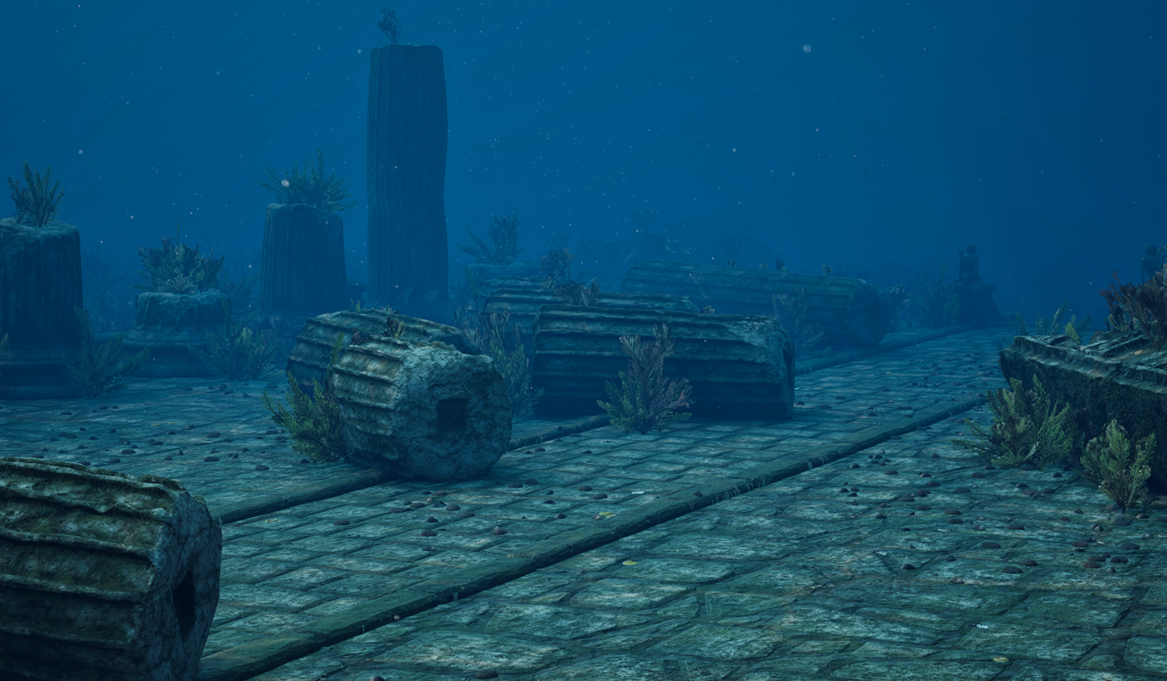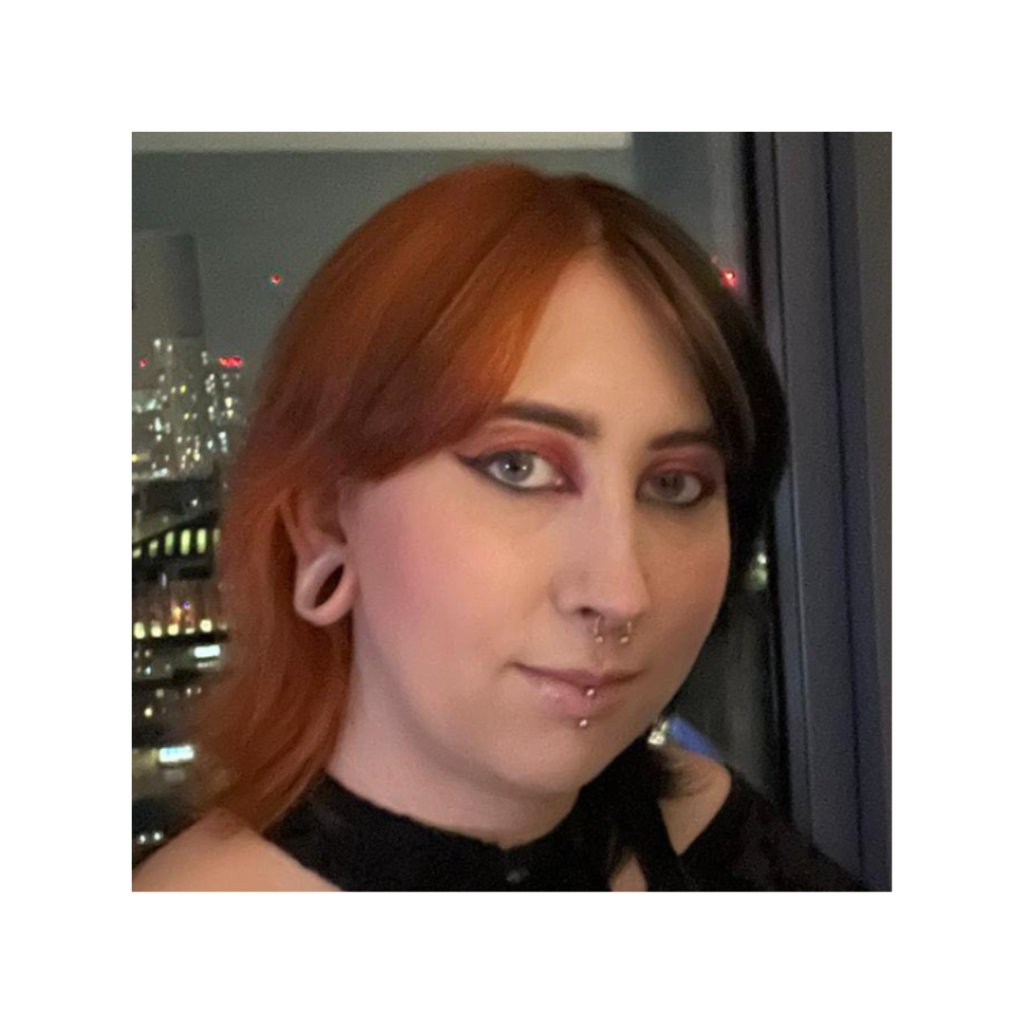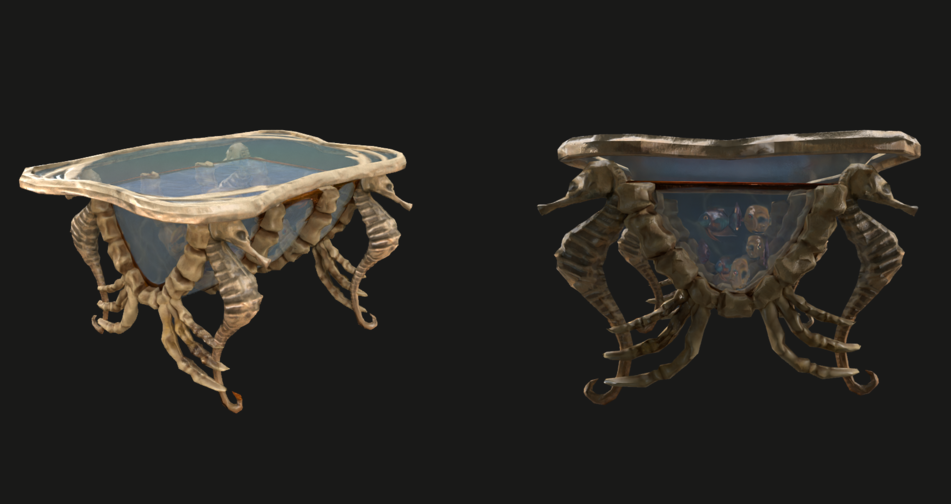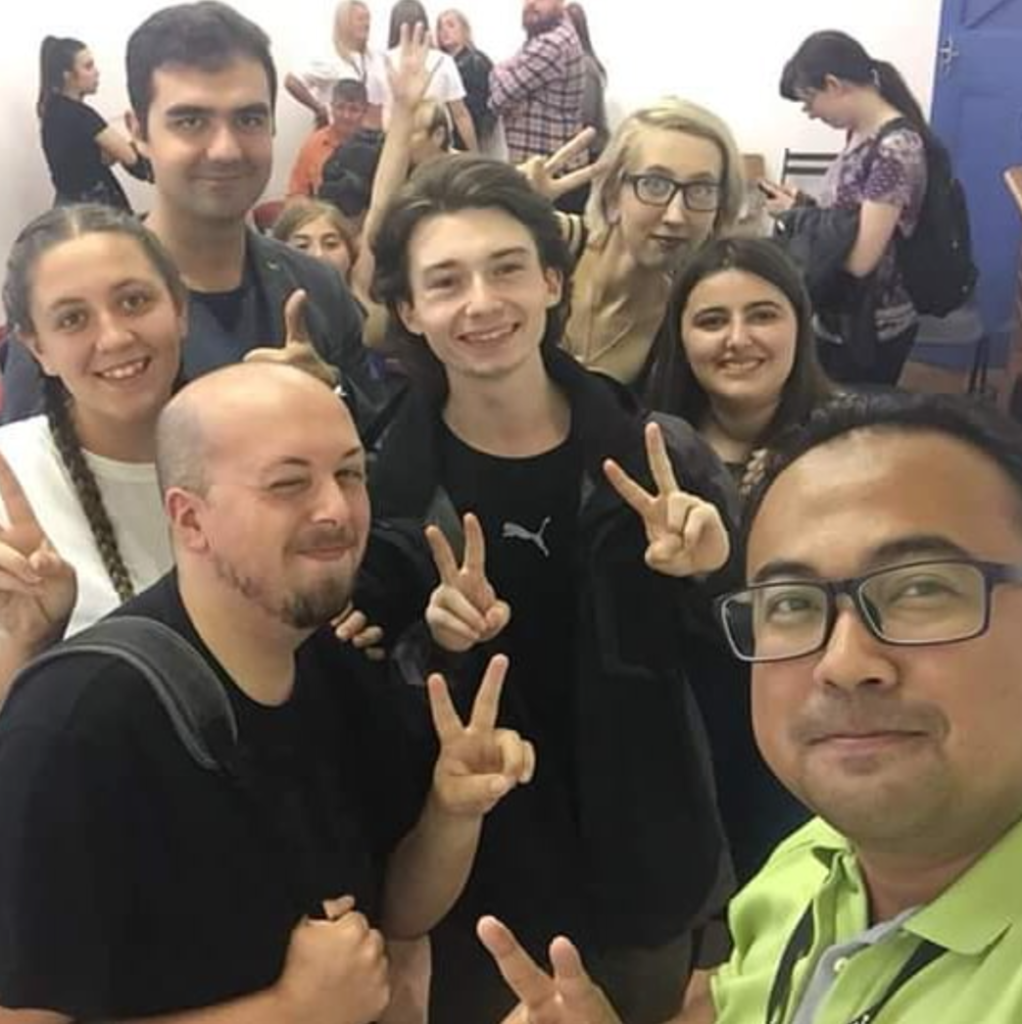Our Masters alumna Abbey Carter has developed a career as a 3D Environment Artist with her business Atlantis 3D Studios after completing her SAE studies.
Alongside her work in game development, Abbey also works as a Freelance Tutor in BTEC Digital Game Arts at LMA Liverpool.
Abbey launched Atlantis 3D Studios with Founder Maxwell Spiegel in May 2023 and officially launched to the public with their debut, The Lost City of Atlantis. On the project, Abbey was responsible for designing secondary architecture, statues, props, organic life such as the coral and fish and set dressing.
Get in touch to find out about the Masters course and learn more about Abbey’s SAE experiences below.
How did you discover SAE?
I think I found my way to university quite differently compared to a lot of other college students at the time.
I didn’t have my eyes set on pursuing higher education and was much more focused on attempting an apprenticeship in a tattoo studio. I would still attend university open days and events as I felt like I needed to with the pressure from both college and external courses. It was at one of these conventions where I discovered SAE. Hearing about what was offered and the dynamics at the university allowed me to open my mind to the possibility of attending.
The real seller for me though was at this convention I’d brought along a small portfolio. Most universities that attended didn’t want to view it and in fact came across very hostile when talking to them. Graham Lysaght, who was representing SAE Liverpool at the event, was very welcoming and was glad to take a look. Looking back I definitely think this was the seller for me.
After completing the BA course, I took a year break to challenge myself in getting into the industry and supporting myself through various jobs, one of which was being an extra in TV shows. It was during a filming day where I’d gotten lost trying to find the location that I thought I’d pay a visit to my old campus. On site I was welcomed back and we began discussing the Masters course. I felt there and then that taking up the course would be a great opportunity not only to expand my portfolio, but also my academic experience. I believe I applied the same day!
For the Masters, what were the most important aspects of the course?
Looking back, the most important aspects were the one-to-one support tutors gave, along with being able to focus the entire study on my passions and not having to explore different avenues of game design.
I had two tutors throughout my time on the course, it was my first tutor that told me to focus on something I was passionate about, as opposed to something big in the industry as this passion would reflect more in my work.
Were there any key things you learned?
For me the key thing was the quote about passion that my tutors reinforced right the way through my studies.
To refer back to the previous question: I had struggled with narrowing down what I wanted to pursue, in the end I decided on recreating the sense of mystery and wonder that Studio Ghibli films do so well at, while also pursuing the art style of more semi-realistic game studios.
This ideology of working on what I’m more passionate about is something I carry with me to this day, and while as a company and a freelancer I may not always get to choose the projects, my passion for game art shows in everything I produce.
I think now with AI being on the rise across many industries, this passion is what will always separate the human from machine.
Do you have any advice for those looking to study the Masters?
Approach the course head on and be prepared to take on anything the tutors may give as feedback as this goes a long way post-study. I personally don’t think I would be where I am in the industry today without the guidance of my course tutors.
How have your studies fed into your different areas of work?
Looking back at the course I feel like it was centred around a lot of personal development, whether this be how you presented yourself to the industry or the pathway you choose to follow.
When looking at personal development, my confidence increased over time and I was able to display myself in a more professional manner, while retaining my creativity. This is something that has carried itself over, not only in my CV and cover letters when applying for solo freelance jobs but also in how the company is presented.
When forming the company, I was responsible for creating the website. The team still gave input to the overall content but it was my knowledge in combining creativity and professionalism that resulted in the site’s appearance today.
Focusing more on the creative pathways, I knew I wanted to focus on environmental art, though my portfolio didn’t always reflect this. Through hard work on the course I was able to form more of a portfolio that focused around environments. This led to the project lead of Valenwood reaching out to me and recruiting me on to the modding team.
Through this experience and developing a portfolio, I felt confident enough to start connecting with more people on Linkedin, which then resulted in forming a friendship and outsourcing studio with Maxwell Spiegel.
What is next for you and your various projects?
While I cant reveal too much about the company’s plans, we are aiming to release more asset packs for the marketplace, and hope to connect with more studios who could use our work.
As a company, we have already worked on product visualisation, asset packs and full scale environments. We aim to continue to work on different projects, constantly pulling our various interests and skills together. Recently, we have also been able to take on more team members to aid in our path together.
Visit atlantis3dstudios.com to find out more.
STUDY AT SAE
SAE offers two-year accelerated degree courses in growth creative media industries – Audio Production, Content Creation & Online Marketing, Game Art Animation, and Games Programming – all aimed at helping the next generation of creative professionals get ahead.


































